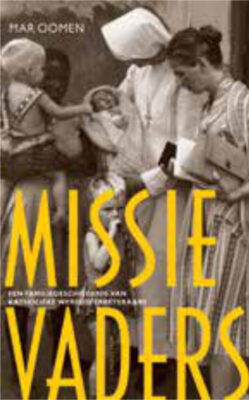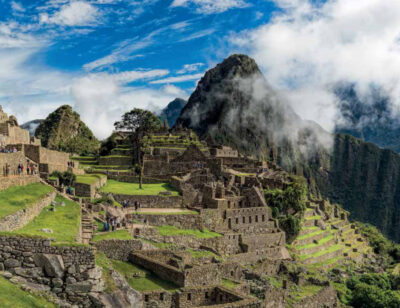Main content
Mission fathers: a family history of Catholic do-gooders
By Mar Oomen
2019, 302 pages
ISBN 978-90-450-3274-0
NUR 680
Atlas Contact
Price: € 12.99 (e-book), € 22.99 (paperback)

The subtitle of this book, nominated in late 2020 for the Libris Geschiedenis Prijs (an annual price for history books in Dutch), is telling. Mar Oomen, an anthropologist, reconstructs her parents’ and grandparents’ life stories.
Her grandfather Janus Oomen and his wife Stans became inspired by Albert Schweitzer and the Catholic faith. They left the Netherlands with their two young children in 1933, travelling by boat to what was then known as the Dutch East Indies. He gathered fame as a medical doctor and laid the basis for his later international career. Besides his work as a WHO advisor in the Far East and as director of the Department of Tropical Hygiene at the Royal Tropical Institute in Amsterdam, Prof. Dr H.A.P.C. Oomen (Janus) was co-founder (in 1962) and manager of Medicus Mundi (which later merged with Memisa and became part of Cordaid). For more than twenty years he served as chief editor of Tropical and Geographical Medicine, one of the predecessors of the European journal Tropical Medicine and International Health. His contribution to ‘tropical medicine’ and the science of human nutrition was summarised in a short article (in Dutch) published in the Nederlands Tijdschrift voor Geneeskunde (Dutch Journal of Medicine) that celebrated his fiftieth anniversary as a medical doctor in 1982.*
Janus’ son Dries Oomen (the author’s father) was employed as internal medicine specialist in Tanzania and Ethiopia from 1958 to 1968. Soon after his return to the Netherlands with his family, he obtained a PhD degree based on field research into podoconiosis (non-filarial elephanthiasis). Much to his own regret and with feelings of shame, Dries was unable to further pursue his career due to a mental condition. It had its roots during his childhood when he spent harsh times with his elder brother in a camp, separated from their parents, during the Japanese occupation prior to Indonesia’s declaration of independence in August 1945. The book describes this period extensively, partly based on letters and diary notes.
This is an interesting read for those of you who used to work in overseas (medical) development cooperation. For the younger generations of international health professionals (including medical doctor Global Health and Tropical Medicine (AIGT), it offers a rich description of the change in thinking, in the Netherlands as well as internationally, about the societal role of the church (not only the Catholic church), poverty, healthcare and North/South relations. It also describes church-affiliated hospitals in Tanzania and their position vis-a-vis their religious congregations with their international networks on the one hand, and how they relate to national and local government administrations on the other hand. This is still topical as many AIGTs these days do part of their medical training or find employment in Sub-Saharan Africa in these same church-affiliated hospitals.
Parts of the story are quite dramatic and heroic, which those of you who have lived and worked in resource constrained environments may recognise. The former predominantly missionary motivation has been replaced in the present generation of Dutch medical doctors by a combination of personal, professional and social motivations, still with a good deal of adventurism. In several instances, the author makes arguable statements, for example in the epilogue: “Of course we know (to some extent) that Dutch Catholic missionaries in the twentieth century made a huge contribution to the christening and so-called civilisation of several parts of the world” (translation lb). The recent book Revolusi by David van Reybrouck takes a different perspective in a truly thrilling manner.
* https://www.ntvg.nl/system/files/publications/1982102130001a.pdf


















































